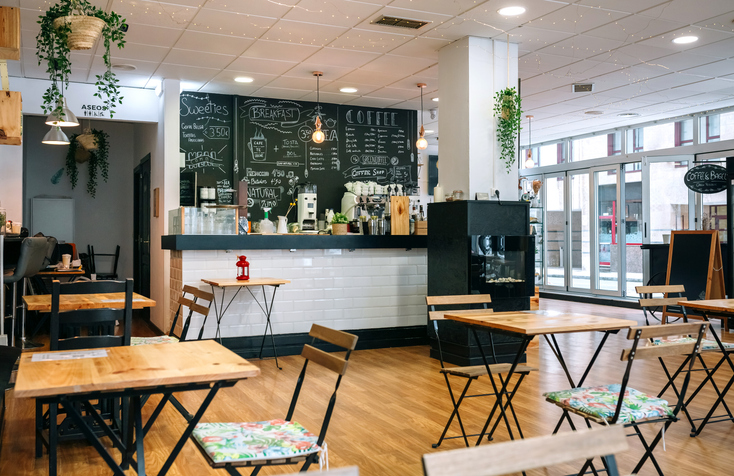Have you ever witnessed a situation where a patron trips on a poorly visible or lit-up step when entering the door or going to their table in a restaurant? Or has this exact scenario happened to you? To claim compensation, the patron must prove that the restaurant staff knew about the poorly lit step and did not provide a warning to the customer to watch that particular step. Another common situation might be someone falling on a slippery floor. If surveillance footage shows the spill was present for an extended period and staff walked past it without taking action, this could establish negligence.
When dining out in Georgia, patrons expect a safe and enjoyable experience. However, accidents can happen, leading to injuries that may result in significant physical, emotional, and financial burdens. In such cases, determining liability for an accident in a restaurant is crucial for seeking compensation.
Premises Liability Law For Restaurant Accidents In Georgia
Under Georgia law, restaurant owners and operators have a legal duty to maintain a safe environment for their customers. They can be liable for any resulting injuries if they fail to uphold this responsibility through negligence, such as ignoring hazardous conditions or addressing safety concerns.
Understanding the premises liability in Georgia can help injured parties navigate their legal options and pursue rightful compensation. Accidents in restaurants can lead to severe injuries, and understanding liability is crucial for patrons and restaurant owners in Georgia.
In Georgia, premises liability law governs property owners’ responsibilities to ensure their visitors’ safety. Restaurants, as public establishments, fall under this category. Under Georgia law, restaurant owners must maintain their premises in a reasonably safe condition for their patrons, which includes regular maintenance, prompt repair of hazards, and explicit warnings about any potential dangers.
Common Causes of Accidents
- Slips and Falls: Slips and falls are among the most frequent causes of restaurant accidents. They can occur due to wet floors, spilled food, uneven flooring, or poorly maintained walkways.
- Food Poisoning: Contaminated food can cause serious health issues. Restaurants must follow strict food safety regulations to prevent such incidents.
- Burns and Cuts: Customers can suffer burns from hot food or beverages and cuts from broken glass or sharp objects.
- Assaults: Restaurants are liable for assaults on their premises if they fail to provide adequate security measures.
Establishing Liability For Restaurant Accidents
The injured party must prove that the restaurant owner or staff were negligent in establishing liability. The following elements must be demonstrated:
- Duty of Care: The restaurant owed a duty of care to the patron.
- Breach of Duty: The restaurant breached this duty through action or inaction.
- Causation: The breach directly caused the injury.
- Damages: The patron suffered actual damages as a result.
Restaurant owners must regularly inspect their premises for potential hazards. If a risk is identified, it should be addressed immediately. For example, if a spill occurs, staff must clean it up promptly and place warning signs to alert customers. Failure to do so can be seen as a breach of duty.
The injured party has the burden of proof. They must show that the restaurant knew or should have known about the hazard and failed to take appropriate action. This burden of proof can be challenging and often requires evidence such as witness testimony, surveillance footage, and maintenance records.
Georgia follows a modified comparative negligence rule. If the injured party is found to be partially at fault for the accident, their compensation can be reduced by their percentage of fault. If they are found to be 50% or more at fault, they cannot recover any damages.
Damages As A Result Of Restaurant Liability and Comparative Negligence
Injured parties can seek compensation for medical expenses, lost wages, pain and suffering, and other related costs. Victims should consult with a personal injury attorney to navigate the complexities of premises liability cases and to ensure their rights are protected. Keep in mind that Georgia follows a modified comparative negligence rule.
Preventative Measures for Restaurants
Restaurants in Georgia should implement rigorous safety protocols to avoid liability. Staff must be regularly trained on hazard recognition and response, conduct routine inspections, and provide prompt maintenance. Clear signage and swift action on reported hazards can significantly reduce the risk of accidents.
Takeaway
Liability for accidents in Georgia restaurants hinges on the principles of premises liability law. Restaurant owners must maintain safe environments, and patrons must be aware of their surroundings. When accidents occur, proving negligence is key to securing compensation, but both parties share responsibility for preventing such incidents. Gautreaux Law, LLC has experienced personal injury attorneys who can help you seek the relief you deserve if you have been involved in a restaurant accident. Contact our office for a complimentary initial consultation. We are dedicated to helping you prevail in your case.



